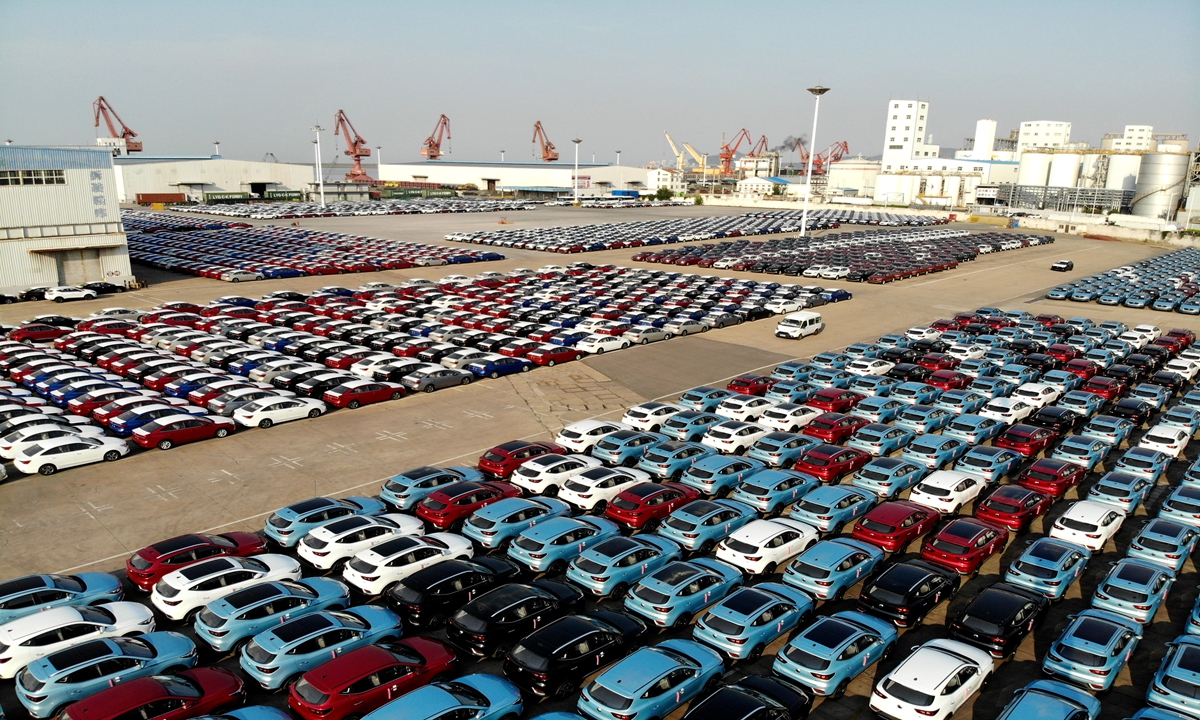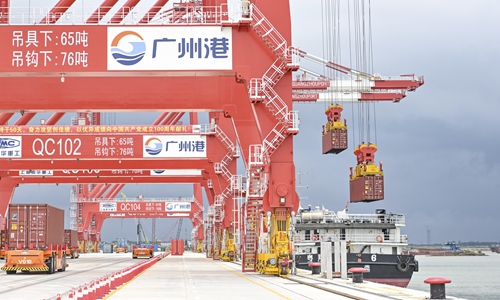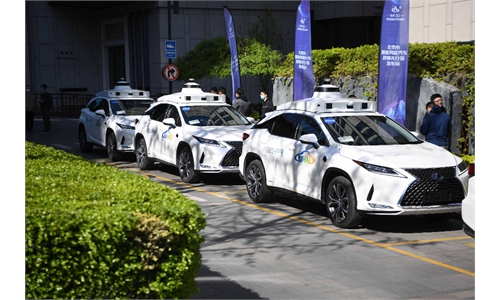China's car exports set record of 290,000 in July, as sector maintains strong recovery

Nearly 5,000 of SAIC's MG-branded vehicles wait to be exported at the port of Lianyungang, East China's Jiangsu Province on Sunday. Photo: cnsphoto
China's automakers exported 290,000 vehicles in July, achieving a new record with 67 percent year-on-year growth, the China Association of Automobile Manufacturers (CAAM) said on Thursday, noting that the industry has maintained a strong recovery since June.
From January to July, China's auto exports totaled 1.509 million units, up 50.6 percent year-on-year, and the full-year figure is expected to exceed 2.4 million, according to the CAAM.
In the new-energy vehicle (NEV) sector, production hit 617,000 units and sales hit 593,000 units in July. The export volume of NEVs in July stood at 54,000 units, up 37.6 percent year-on-year and nearly 90 percent month-on-month.
Meanwhile, the purchasing managers' index for the auto manufacturing industry stood at 52 in July, higher than the country's overall level of 49, thanks to the easing of COVID-19 in auto manufacturing hubs, including Shanghai and Changchun, Northeast China's Jilin Province, as well as supportive policies issued by relevant authorities, the CAAM said.
In July, overall vehicle production came in at 2.455 million, down 1.8 percent month-on-month but up 31.5 percent year-on-year. Sales in the month reached 2.42 million units, down 3.3 percent month-on-month but up 29.7 percent year-on-year.
The CAAM said that the industry's positive momentum might persist through August and into the consumption peak season in September. Due to the auto chip shortages in August last year, the cumulative volume of auto production and sales may both see year-on-year increases, it said.
Chinese authorities have also been stepping up policy support for the car industry, particularly the NEV sector.
In a major boost for NEV sales, an executive meeting of the State Council, China's cabinet, on July 29 announced plans to extend the purchase tax exemption for NEVs, according to the Xinhua News Agency. The previous exemption period, set in April 2020, was scheduled to expire at the end of 2022.
Global Times



